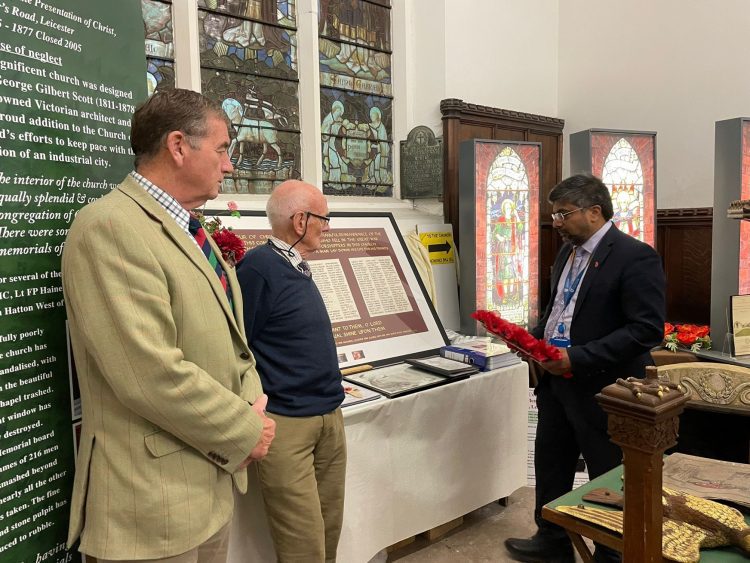The University of Leicester will mark the culmination of its ‘Poppy Pilgrimage’ next week – a mission to lay 100 poppy wreaths to commemorate the 100th anniversary of the end of the First World War.
The University’s Poppy Pilgrimage, began in 2018, as a mission to lay 100 poppy wreaths across Leicester, Leicestershire and Rutland in recognition of the local people who made sacrifices during the First World War.

Since then, 90 poppy wreaths have been laid at memorial sites across Leicester, Leicestershire and Rutland.
Next week, the University of Leicester hopes to complete its Poppy Pilgrimage by visiting the final 10 sites, concluding next Friday (November 11) at the University of Leicester’s, Fielding Johnson Building.
We all owe an enormous debt of gratitude to thosevwho made sacrifices for the benefit of our future,” said Professor Nishan Canagarajah, President and Vice-Chancellor of the University of Leicester.
“This University is a testament to that spirit of sacrifice and our Poppy Pilgrimage provides occasion to remember, reflect and honour all those who played their part in the First World War. It is fitting that as we close our Centenary Year and begin our second century, we pay tribute to those that have gone before and upon whose sacrifices our foundations are built.”
Frazer Stark is Armed Forces Champion at the University of Leicester, and will be among those laying the final poppy wreaths.
“The Act of Remembrance is there to unite people of all faiths, cultures and backgrounds in a hope for a peaceful future,” he said. “The University of Leicester’s commitment to the Poppy Pilgrimage has displayed the institution as a leader in the Leicester, Leicestershire and Rutland area in honouring those who have paid the ultimate sacrifice for our way of life.
“I’ve served in the Armed Forces for 16 years and I am now proud to serve a university that is wholly committed to bringing the wider community together in this common cause.”
The University’s long-standing association with the Armed Forces is enshrined in the Armed Forces Covenant, which states that veterans should face no disadvantage compared to other citizens in the provision of public and commercial services.



